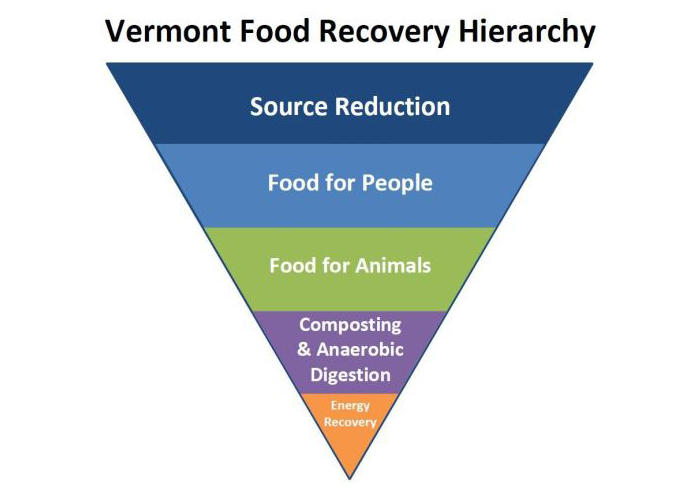http://digital.vpr.net/post/three-months-recycling-will-be-mandatory-vermont
Many
of those involved in producing and handling waste met in Randolph
Center Thursday for an annual summit to discuss how recycling is
changing.
Already under Act 148 the state’s Universal Recycling Law, transfer stations and drop-off facilities have to accept recyclables. Beginning July 1, trash haulers will have to do the same at no additional charge.
Most significantly, on that date recycling will shift from voluntary to mandatory. Every residence and business will be required to separate recyclable metal, glass, plastic and paper from trash.
“The reason is not only that we have limited landfill space, but these materials are commodities. We have two facilities in this state that support green jobs where recyclables are sorted and sold to market,” says Josh Kelly of the Vermont Agency of Natural Resources.
Also beginning July 1, municipalities will have to provide recycling containers along with trash cans in public places and transfer stations, and drop-off facilities will be required to accept leaf and yard debris.
Many
pending provisions of the universal recycling law are aimed at getting
food and other organic waste diverted for composting, beginning with
large supermarkets and other big institutional producers. In 2020, food
scraps, too, will be banned from landfills. .
Kelly says there’s a growing infrastructure of haulers and composting and biodigester facilities able to handle food waste.
He says many large food waste producers are already separating materials for composting, but eventually restaurants will have to take the same step taken seven years ago by the Wayside Restaurant in Central Vermont.
“I said no twice to the idea,” says Wayside owner Brian Zecchinelli. “It seemed very overwhelming, but I talked to the staff and listened to the school children who were so enthusiastic, so we adopted it and it’s real easy.”
According to the state, 50 percent of the waste that currently ends up in the landfill can be recycled or composted.
Already under Act 148 the state’s Universal Recycling Law, transfer stations and drop-off facilities have to accept recyclables. Beginning July 1, trash haulers will have to do the same at no additional charge.
Most significantly, on that date recycling will shift from voluntary to mandatory. Every residence and business will be required to separate recyclable metal, glass, plastic and paper from trash.
“The reason is not only that we have limited landfill space, but these materials are commodities. We have two facilities in this state that support green jobs where recyclables are sorted and sold to market,” says Josh Kelly of the Vermont Agency of Natural Resources.
Also beginning July 1, municipalities will have to provide recycling containers along with trash cans in public places and transfer stations, and drop-off facilities will be required to accept leaf and yard debris.
"The reason is not only that we have limited landfill space, but
these materials are commodities. We have two facilities in this state
that support green jobs where recyclables are sorted and sold to
market." - Josh Kelly of the Vermont Agency of Natural Resources
Kelly says there’s a growing infrastructure of haulers and composting and biodigester facilities able to handle food waste.
He says many large food waste producers are already separating materials for composting, but eventually restaurants will have to take the same step taken seven years ago by the Wayside Restaurant in Central Vermont.
“I said no twice to the idea,” says Wayside owner Brian Zecchinelli. “It seemed very overwhelming, but I talked to the staff and listened to the school children who were so enthusiastic, so we adopted it and it’s real easy.”
According to the state, 50 percent of the waste that currently ends up in the landfill can be recycled or composted.

No comments:
Post a Comment